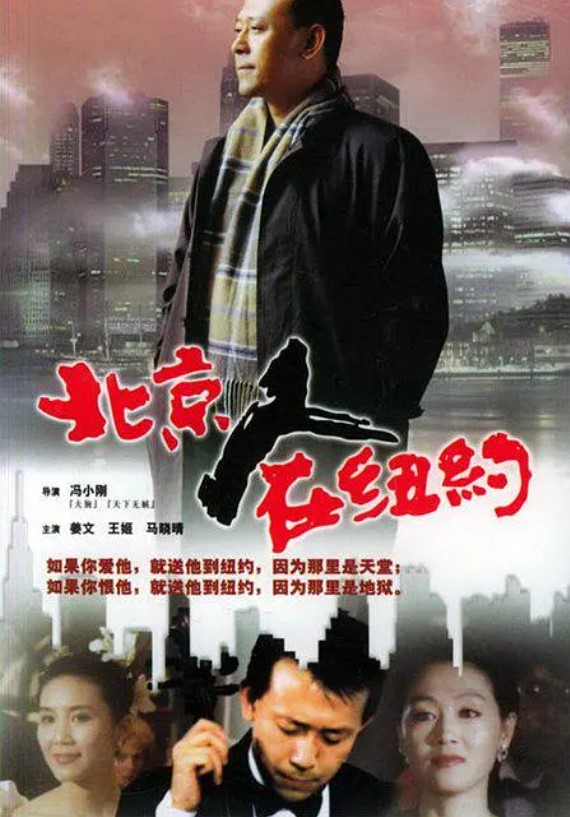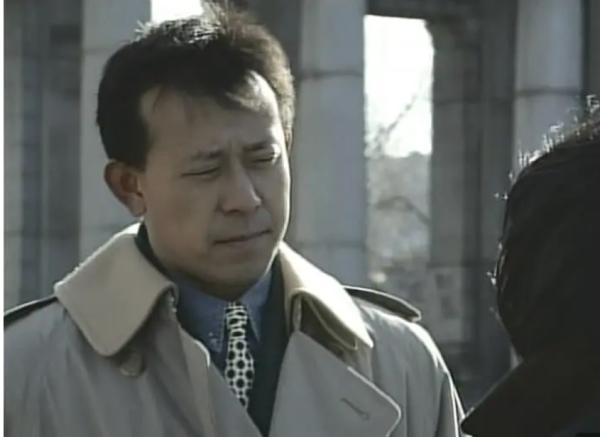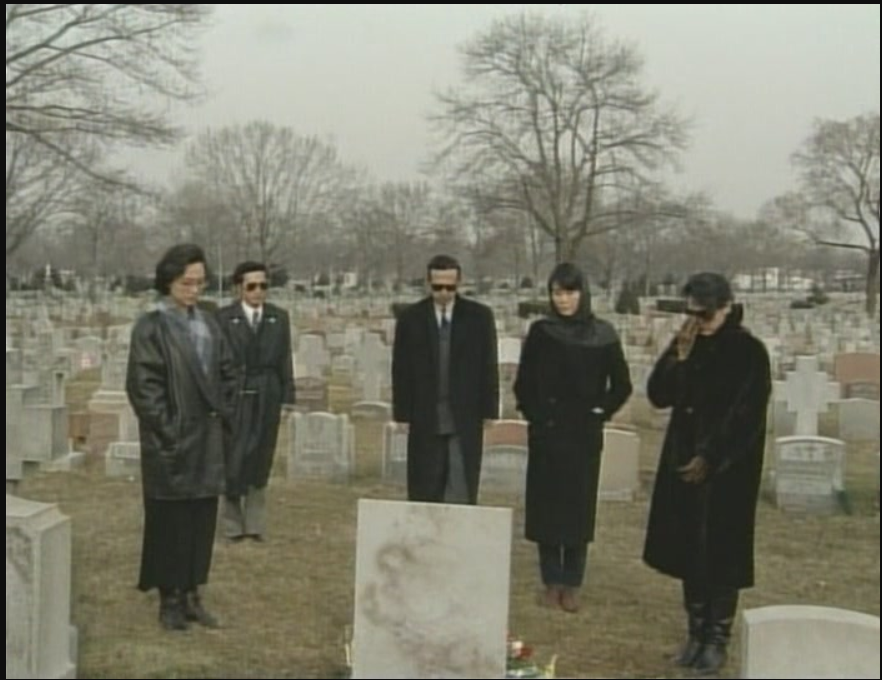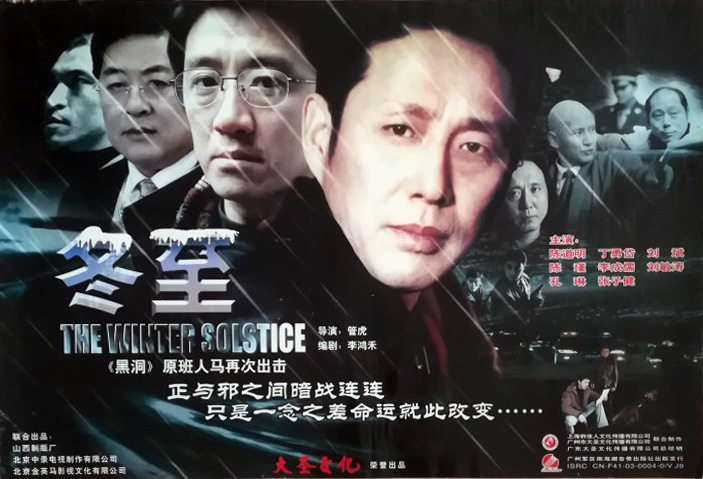
Editor's note: This is a nostalgic theater.
"I have been chasing you for thousands of miles, but you don't care. It's not like you are in my dream. In the dream, you are the only one for me." It would not be an exaggeration to say that "Millions of Questions" sung by Liu Huan was the most popular pop song in the autumn of 1993. The reason is also very simple. This song is the ending theme of the 21-episode TV series "Beijingers in New York". This TV series caused a huge sensation after its prime-time premiere on CCTV Channel 2 (September 26, 1993). It started rebroadcasting on the 21st episode and subsequently won the "Five Ones" project in 1993. Award, the 12th Popular Television Golden Eagle Award, the 14th Feitian Award and many other awards.

"Beijingers in New York" poster
As the name suggests, "Beijingers in New York" tells the story of a new Chinese immigrant who went to New York to work hard. The crew spent US$1.5 million to shoot on location in the United States. For Chinese audiences in the early 1990s, "Beijingers in New York" was like an open window, allowing them to experience an exotic style full of modernity.
In the opening credits of each episode, the dazzling Manhattan skyline, row upon row of skyscrapers, gleaming Times Square, criss-crossing viaducts, and the endless flow of vehicles are realistically presented on the TV screens of Chinese audiences. Even the drinks and red wine the characters drink on different occasions in the play also make the audience feel novel. Of course, today, the urban lifestyle presented in the play is no longer surprising.

Trump Tower in New York featured in the play
The protagonist of the TV series Wang Qiming (played by Jiang Wen) and his wife Guo Yan (played by Yan Xiaopin) came to New York, USA, with their yearning for a better material life, the so-called American dream.
Wang Qiming is an outstanding cellist in the country. Because of this, he brought the cello to the United States, which shows that he hopes to continue to engage in his profession and develop his professional expertise in the United States. However, his "American Dream" was shattered almost from the start.
When the couple landed in New York, Aunt Guo Yan, who came to pick them up, sent them to a dilapidated basement, dropped $500 and left. When they first arrived, the most basic living conditions became a luxury for them. The two of them went from being shocked and confused to being wronged and humiliated, and Guo Yan cried sadly.

The protagonist Wang Qiming played by Jiang Wen
This scene is actually a microcosm of the conflict between Chinese and Western cultures that runs through the entire TV series. In the eyes of the already somewhat Westernized aunt, helping them go through the formalities for coming to the United States, picking them up from the airport and arranging their accommodation, lending them living expenses, and introducing Wang Qiming to work in a Chinese restaurant, this already exceeded Western standards of human kindness; To mainlanders who grew up under the influence of Chinese culture, my aunt is too tasteless and snobbish. She seems to be deliberately demonstrating to them to let them taste the warmth and warmth of Western humanity.
These new Chinese immigrants who came to the United States experienced embarrassment in life and emotional torture and turmoil. As Guo Yan's aunt said, "there is no going back" and they are "neither Chinese nor Americans." I can't find my sense of belonging in the United States.
The main story line of "Beijingers in New York" is Wang Qiming's struggle history starting from the basement. In two or three years, he changed from a dishwasher in a Chinese restaurant to a millionaire garment factory owner, from a penniless poor boy to a wealthy Chinese businessman who has joined the upper class. His residence also moved from a dark basement to Queens, New York. mansion in the area.
However, his path to prosperity was not dignified: he first relied on financial support from his lover Achun, and then relied on his ex-wife Guo Yan's second husband David. In order to "succeed" Wang Qiming used any means, betrayed his trust, and even sacrificed the emotions and personal dignity of his friends and relatives. Even so, as the U.S. economy fell into a cyclical recession, Wang Qiming's real estate investments suffered heavy losses. In order to have enough liquidity, Wang Qiming made a desperate move in Atlantic City Casino. However, good luck ran out and Wang Qiming lost everything.

Guo Yan remarries David
This is reminiscent of the opening subtitles of the TV series, "If you love him, then send him to New York, because that is heaven; if you hate him, then send him to New York, because that is hell." In fact, New York is both It’s neither heaven nor hell, but the sense of disappointment and disillusionment that permeates the play lingers.
When David and Guo Yan returned from their honeymoon, David found that his original client had become Wang Qiming's, so he kicked her out of the house angrily. Faced with David's complaints and incomprehension, Guo Yan chose to endure it, left David, and worked as a cleaner at an American university as punishment for herself.
As for Wang Qiming's daughter, after the adolescent Ning Ning came to the United States, even though she lived in a big house earned by her parents, she faced a broken family without the complete love of her parents. She actually acted in an extremely subversive way. Revenge - marrying his American boyfriend's father.
Near the end of the TV series, Wang Qiming extended his middle finger to express his attitude towards New York, the United States, and this prosperous world of money. At this time, almost everything he owned was taken away: his dignity as an artist was taken away by the reality of life, his beloved wife was taken away by the Americans, his beloved daughter was taken away by Western culture, and even his good friend Big Brother was taken away. Li struggled for many years in the United States to obtain a green card, but was unable to obtain it. In the end, he died in an accident in a car accident... Wang Qiming's American dream was completely shattered.

Da Li’s funeral is also the funeral of the “American Dream”
What is intriguing is that at the end of the TV series "Beijingers in New York", Wang Qiming's Beijing friend Deng Wei came to seek refuge with Wang Qiming in New York. Wang Qiming picked him up and sent Deng Wei to the dilapidated basement where they first lived, leaving behind $500. Then left. As a result, people saw a familiar scene: Deng Wei yelled at Wang Qiming. This is another sign that the “American Dream” is being shattered before it even begins.


